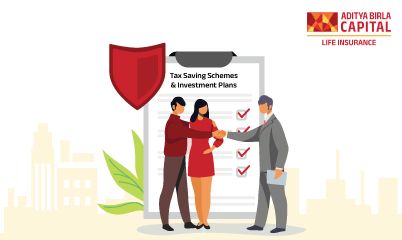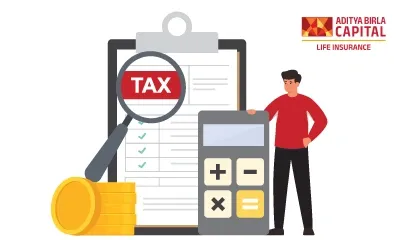5 Smart Ways to Save Tax

Plan Smarter, Live Better!


- Table of Contents
FAQs - Ways to Save Tax
The 80C deduction under Chapter VI-A of the Income Tax Act refers to a provision that allows taxpayers to claim deductions on certain investments and expenses, thereby reducing their taxable income. Under Section 80C, taxpayers can avail of deductions of up to ₹1.5 lakh per financial year by investing in specified instruments such as:
a. Equity-linked Savings Schemes (ELSS)
b. Public Provident Fund (PPF)
c. National Savings Certificate (NSC)
d. Employee Provident Fund (EPF)
e. Tax-saving Fixed Deposits f. Life Insurance Premiums
g. Principal Repayment on Home Loan, etc.
By investing in these instruments, taxpayers can lower their taxable income by up to ₹1.5 lakh per year, leading to significant tax savings.
If you earn ₹15 lakh annually, there are several tax-saving strategies you can consider to optimise your tax liability:
a. Utilise Section 80C Deductions: Invest in tax-saving instruments such as ELSS, PPF, NSC, EPF, and tax-saving Fixed Deposits to avail deductions of up to ₹1.5 lakh under Section 80C.
b. Contribute to the NPS Scheme: Invest in the National Pension System (NPS) to claim additional deductions of up to ₹50,000 under Section 80CCD(1B).
c. Utilise Other Deductions: Explore other deductions available under the Income Tax Act, such as Section 80D for health insurance premiums, Section 24(b) for home loan interest, and Section 80E for education loan interest.
d. Optimise Allowances and Reimbursements: Take advantage of tax-free allowances and reimbursements offered by your employer, such as House Rent Allowance (HRA), Leave Travel Allowance (LTA), and medical reimbursements.
e. Choose the Right Tax Regime: Evaluate whether the old tax regime or the new tax regime would be more beneficial for you based on your tax-saving investments and deductions.
By strategically planning your tax-saving investments and taking advantage of available deductions, you can effectively reduce your tax liability even with an income of ₹15 lakh.
The maximum amount of tax you can save in India depends on various factors such as your income, tax-saving investments, and deductions claimed. However, the most significant tax-saving opportunity for individual taxpayers is the deduction available under Section 80C of the Income Tax Act.
Under Section 80C, taxpayers can avail of deductions of up to ₹1.5 lakh per financial year by investing in specified instruments such as ELSS, PPF, NSC, EPF, and tax-saving Fixed Deposits. Additionally, contributions to the NPS scheme are eligible for an additional deduction of up to ₹50,000 under Section 80CCD(1B).
By optimising your tax-saving investments and deductions, you can maximise your tax savings within the limits prescribed by the Income Tax Act.
Yes, if you have paid excess income tax due to deductions, exemptions, or tax-saving investments, you can claim a refund from the Income Tax Department. The process for claiming a tax refund typically involves filing an income tax return (ITR) and providing details of your income, deductions, and taxes paid.
If the total tax paid exceeds your actual tax liability after considering deductions and exemptions, the excess amount will be refunded to you by the Income Tax Department. You can choose to receive the refund either through direct credit to your bank account or by receiving a refund cheque.
It's essential to file your income tax return accurately and within the specified due dates to ensure timely processing of your refund claim
Saving tax is essential for several reasons: a. Maximising Disposable Income: By reducing your tax liability through deductions and exemptions, you can retain more of your income for personal use and savings.
b. Encouraging Investments: Tax-saving incentives encourage individuals to invest in various instruments such as mutual funds, insurance policies, and retirement plans, which help in wealth creation and financial planning.
c. Promoting Economic Growth: Tax-saving investments channel funds into sectors such as infrastructure, housing, and capital markets, contributing to economic growth and development.
d. Ensuring Financial Security: Tax-saving investments such as insurance policies and retirement plans provide financial security and stability for individuals and their families during emergencies and retirement.
Overall, saving tax is a crucial aspect of financial planning and wealth management, allowing individuals to optimise their resources and achieve their long-term financial goals.
Buy ₹1 Crore Term Insurance at Just ₹575/month1
ABSLI DigiShield Plan
Life cover up to 100 years of age.
Joint Cover Option
Inbuilt Terminal Illness Benefit
Tax Benefit^
Return of Premium Option~
Life Cover
₹1 crore
Premium:
₹575/month1
Most Popular Calculator
#Provided all due premiums are paid.
ADV/7/24-25/824







